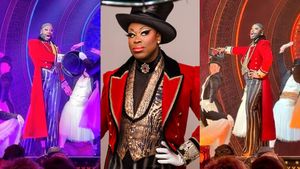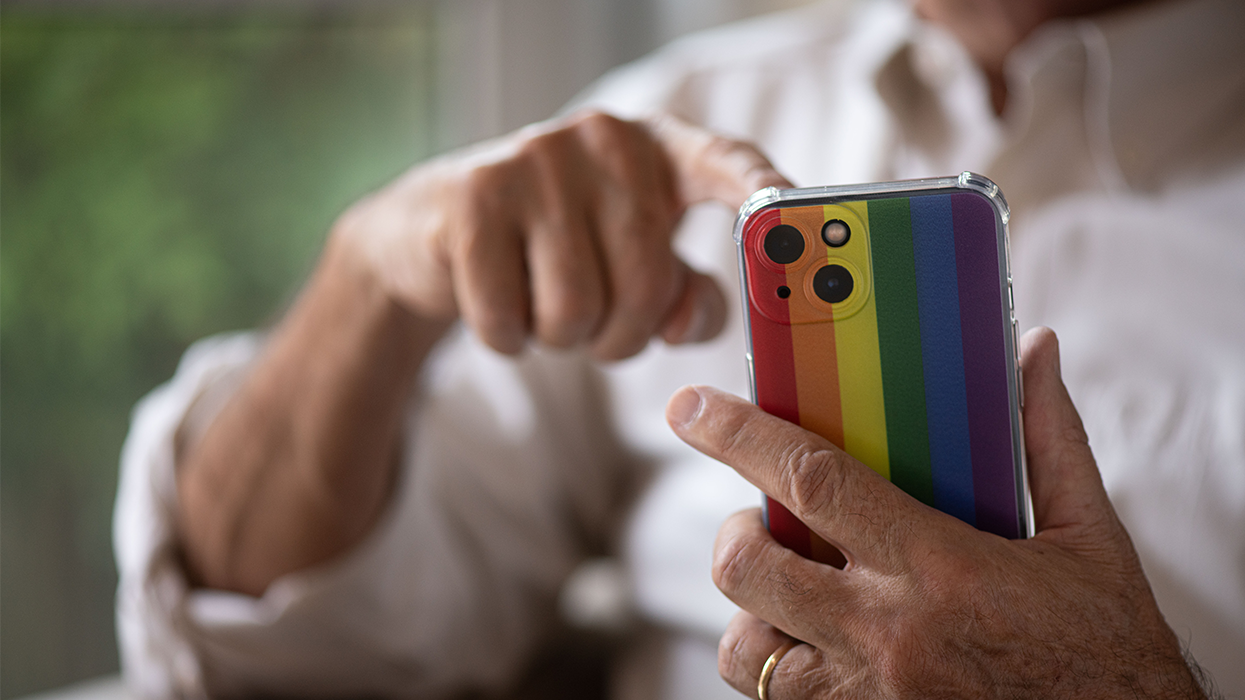They read Nietzsche (or at least the Wikipedia summary), know how to s “feminism” in a sentence, and think that playing you a Phoebe Bridgers song counts as vulnerability. Welcome to the world of softbois.
Softbois (sometimes spelled “soft boy”) are a slippery dating archetype. They're emotional, poetic, deeply into their curated Letterboxd accounts, and often deeply full of it.
At first glance, they’re the antidote to toxic masculinity: emotionally intelligent, progressive, and interested in connection. But spend a little more time with them, and you may start to notice performative empathy, sudden ghosting, and low-key negging wrapped in Radiohead lyrics. If you’ve ever left a situationship feeling like you were emotionally gaslit by a man in a turtleneck who drinks oat milk and owns a copy of Norwegian Wood, chances are, you’ve met a softboi.
But what actually defines a softboi? Where did the term come from? And how do you spot one before you get caught in their web of pseudo-enlightened sadboi energy? We talked to experts—and combed through years of cultural receipts—to break it down.
What is a softboi, really?

Peopleimages.com - Yuri A./Shutterstock
According to Iona David, the creator of the wildly popular Instagram account @beam_me_up_softboi and author of Is This Love or Dopamine?, a softboi is hard to define but extremely easy to spot. They use emotional intelligence, cultural depth, and a carefully curated taste in music, books, and aesthetics to distinguish themselves from so-called basic guys.
Think of him as the romantic evolution of the hipster. He knows about feelings. He’ll talk about his therapist. He’s “not into hookup culture”—but somehow you’re still crying on a Tuesday morning because he said you were “too intense” after three months of texting daily.
How softbois differ from f*ckboys and nice guys

everst/Shutterstock
At first glance, softbois might look like a better, safer option than the traditional “f*ckboy.” But that’s part of the trap.
“A softboi is characterized by being emotionally connected, often politically correct, being interested in culture, and wanting to come off as intellectual,” says Sofie Roos, a licensed sexologist and relationship therapist for Passionerad. “They give off the vibe of being empathic and deep—even though many times, they’re calculating, doing it to create a bond, a feeling of safety, and ‘realness’ to get someone more into them.”
Nice guys, Roos says, also try to present themselves as a better alternative to other men, but tend to emphasize stability and sweetness, contrasting themselves with “bad boys.” F*ckboys, meanwhile, rely on overt charm and sex appeal to get what they want and bounce.
Softbois are sneakier. They’re the ones who send you long voice notes about intimacy and connection, then vanish the moment you say you want something serious.
The softboi aesthetic: Doc Martens, Mac DeMarco, and the trauma dump

Roman Samborskyi/Shutterstock
The term “softboi” may have entered popular use in the late 2010s thanks to Twitter and Tumblr, but The Guardian traced its modern rise to David's now-iconic Instagram account in 2018. Since then, the look and feel of a softboi has become instantly recognizable: thrifted tees, wireframe glasses, deeply niche music references (bonus points if they accuse you of being a fake fan), and a constant need to be understood.
Softbois don’t always say “I’m different,” but they want you to know they are. They romanticize mental illness. They treat literature like foreplay. They ghost you but still watch every Instagram story. They send messages like, “You remind me of a Sylvia Plath poem,” and then ask if you’re “emotionally mature enough to handle them.”
There’s also a spectrum: some softbois are harmless, even endearing. Others weaponize their wokeness to manipulate partners into emotional or sexual vulnerability. David calls these types “self-awareness-as-a-weapon softbois”—men who know they’re a walking red flag, but lean into it like it’s hot.
Why softbois hit harder in queer spaces

Dani D.G/Shutterstock
Even though the archetype is most often tied to cishet men, softboi behavior doesn’t stop at the binary. In queer spaces, the softboi dynamic can be just as common—and sometimes even more challenging to navigate.
Because queer folks are often looking for emotional safety, softbois can feel especially alluring. They give the illusion of a deep connection and shared values, which can make it harder to identify when the relationship becomes manipulative.
"A person that’s a victim to a softboi that uses this stereotype knowingly to manipulate and trick them into something that feels genuine and safe to get sex, closeness or something else from their date can get quite hurt emotionally, leaving feelings of being used, hurt and humiliated," says Roos. This can lead to trust issues "when it’s difficult to open up again, and/or to know if the person you get shown actually is the real person."
This is especially true for those who’ve experienced emotional invalidation in the past. A softboi can feel like a revelation until they start to guilt-trip you for wanting clarity, use their feelings to override yours, or disappear without a word the moment you assert a boundary.
Is it always a red flag? Or just a phase?

Eugenio Marongiu
Not every guy who listens to Mitski or has a dog-eared copy of The Bell Jar is a walking red flag. Some softbois are just soft—and that’s okay.
Understanding if it’s genuine or character play, Roos says, is tricky, “because the fake ones playing a role are often so good at it that you won’t notice until it’s too late and you’re already hurt.”
That said, a “real” softboi won't tick too many of the stereotypical softboi boxes “in a way that feels too cliché or consciously done,” Roos explains.
Softbois can evolve. Some grow up. Some don’t. Your job isn’t to fix them—it’s to protect your peace.
So, are you dating a softboi?

Juan Pablo Olaya Celis/Shutterstock
Ask yourself:
- Do they constantly talk about being “different from other guys”?
- Do they rant about hookup culture but still breadcrumb you?
- Do they say “I’m not emotionally available” while still seeking intimacy?
- Do they use poetry and emotional intelligence like a weapon?
If the answer to more than two of those is “yes,” you might be dating a softboi. And if that’s the case, we suggest this highly advanced coping strategy: Block. Delete. And go make out with someone who listens when you talk.


























































